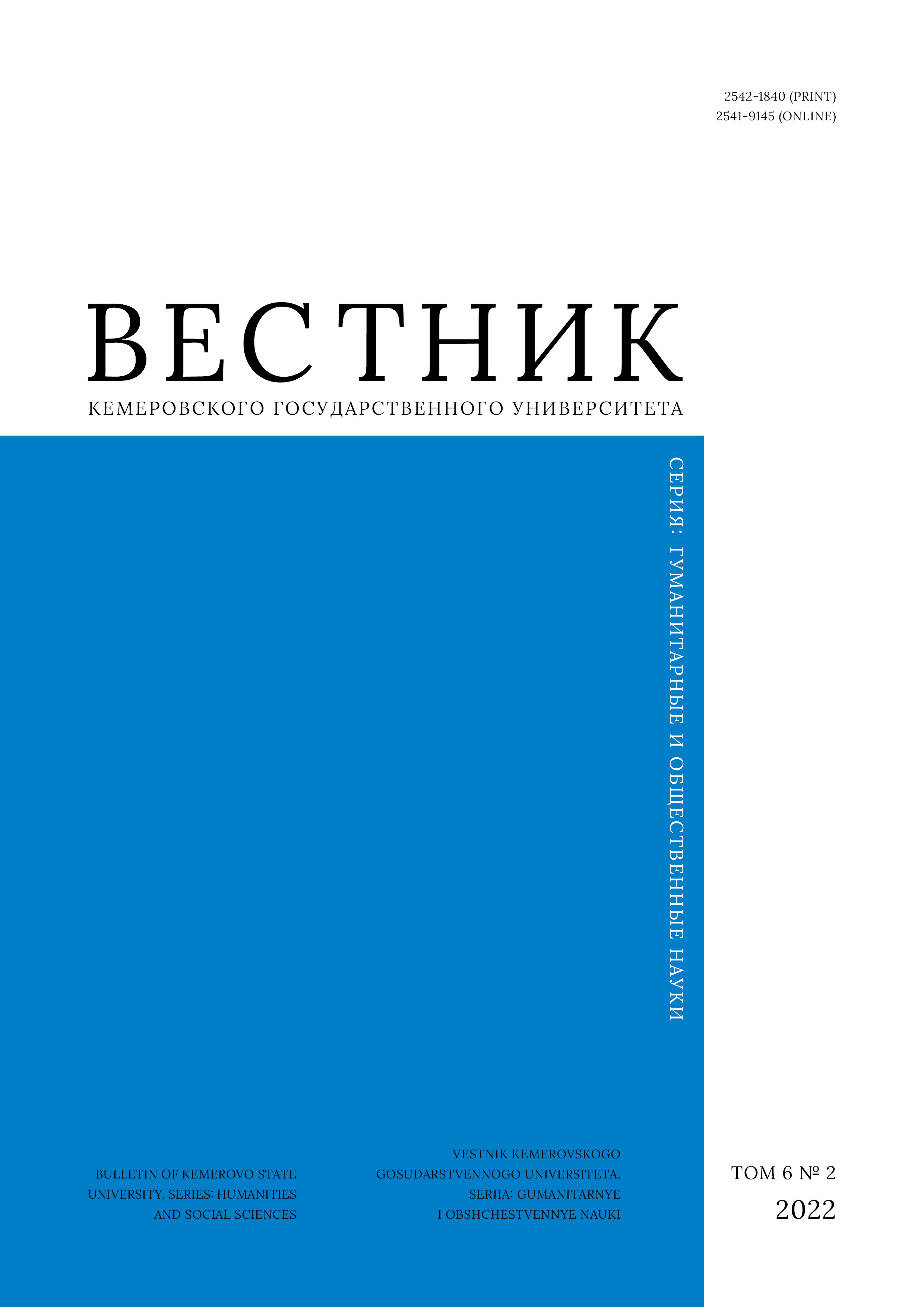Kemerovo, Russian Federation
The Workforce for Digital Economy Federal Project is aimed at developing professional competencies in the field of cross-cutting digital technologies. Digital economy competences depend on the requirements of potential employers, as well as on those of society, state, and labor market. The article introduces the definition of cross-cutting digital competences and describes their basic, personal, and professional components. The author constructed a pedagogical model of developing cross-cutting digital competences in students of supplementary higher education. The model includes goals, objectives, pedagogical principles, internal and external factors, content components, organizational foundations, and pedagogical conditions.
additional professional education, higher education, cross-cutting digital competencies, pedagogical model, e-learning, blended learning, individual academic trajectories
1. Chudinovskikh M. V. Higher education innovative trends in the digital economy. Innovatsii v obrazovanii, 2019, (3): 50-61. (In Russ.)
2. Tulchinskii G. L. Digital transformation of education: challenges for higher school. Russian Journal of Philosophical Sciences, 2017, (6): 121-136. (In Russ.)
3. Ostrovsky A. V., Kudina M. V. New educational paradigm in the era of state digital transformation. Gosudarstvennoye upravleniye. Elektronnyy vestnik, 2020, (78): 229-244. (In Russ.) https://doi.org/10.24411/2070-1381-2020-10041
4. Uvarov A. Iu. Education in the digital world: on the way to digital transformation. Moscow: SU-HSE, 2018, 168. (In Russ.)
5. Popova O. I. Transformation of higher education in the conditions of the digital economy. Management issues, 2018, (5): 158-160. (In Russ.)
6. Competence model of the digital transformation team in the public administration system, eds. Shklyaruk M. S., Garkusha N. S. Moscow: RANEPA, 2020, 84. (In Russ.)
7. Barabanova M. I. Approaches to the formation of digital economy competencies: the basic model of the competencies. Architecture of university education: contemporary universities in a common information space: Proc. IV Nation. Sci.-Method. Conf. with Intern. Participation, St. Petersburg, 30 Jan - 1 Feb 2020. St. Petersburg: SPbSUE, 2020, pt. 1, 18-24. (In Russ.)
8. Konstantinova D. S., Kudaeva M. M. Digital competencies as the basis for the professional education transformation. Russian Journal of Labor Economics, 2020, 7(11): 1055-1072. (In Russ.) https://doi.org/10.18334/et.7.11.111073
9. Ravochkin N. N. Prospects of further training in Russian higher education. Professional education in the modern world, 2017, 7(4): 1410-1417. (In Russ.) https://doi.org/10.15372/PEMW20170410
10. Kuzmenko N. I. Additional professional education at the university as the basis for the formation of human capital. Territoriia nauki, 2017, (1): 38-41. (In Russ.)
11. Danchenok L. A., Zaytseva A. S., Komleva N. V. Transformation of the model of additional education in a digital economy. Otkrytoye obrazovaniye, 2019, 23(1): 34-45. (In Russ.) https://doi.org/10.21686/1818-4243-2019-1-34-45
12. Mikryukov A. A., Mazurov M. E., Shchukina N. A., Rylenkov D. A. Actual issues of formation professional competencies in the field through-digital technologies (neurotechnologies). Innovations and investments, 2020, (11): 120-125. (In Russ.)
13. Panasyuk V. P., Achkasova O. G. Universal digital competencies of the student as a new concept of professional pedagogy. Siberian pedagogical journal, 2021, (5): 114-122. (In Russ.) http://dx.doi.org/10.15293/1813-4718.2105.12
14. Novikov A. M., Novikov D. A. The methodology of scientific research. Moscow: Librokom, 2010, 280. (In Russ.)
15. Dakhin A. N. Pedagogical modeling: essence, effectiveness, and uncertainty. Pedagogika, 2003, (4): 21-26. (In Russ.)
16. Veledinskaya S. B., Dorofeeva M. Yu. Blended learning: secrets of efficiency. Higher education today, 2014, (8): 8-13. (In Russ.)
17. Barakhsanova E. A., Danilova A. I. Implementation of e-learning in the digital educational environment. Azimuth of Scientific Research: Pedagogy and Psychology, 2018, 7(4): 38-40. (In Russ.)
18. Shirokolobova A. G., Larionova Ju. S. Change of educational paradigm due to e-learning technologies implementation in higher education. Pedagogy. Theory & Practice, 2021, 6(3): 357-362. (In Russ.) https://doi.org/10.30853/ped210020
19. Achkasova O. G., Shirokolobova A. G., Gubanova I. V. Individual academic trajectories of students in the process of learning to a mixed model in the system of lifelong education of a university. Actual problems of social history, philosophy, and social work: 22nd All-Russian Sci. Reading: Abstr. Report and Messages Sci.-Theor. Conf., Novocherkassk, 14-15 Oct 2021. Novocherkassk: Lik, 2021, 75-77. (In Russ.)


















